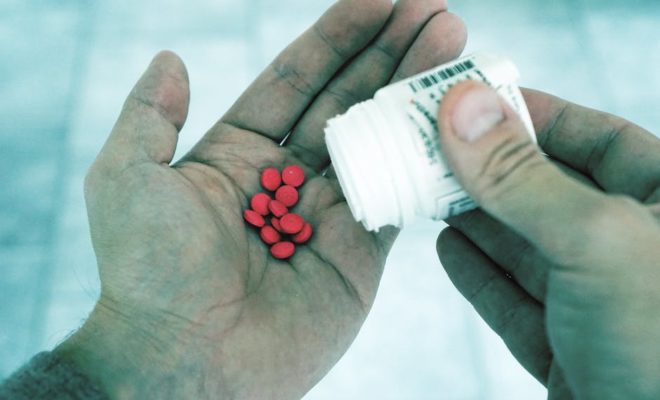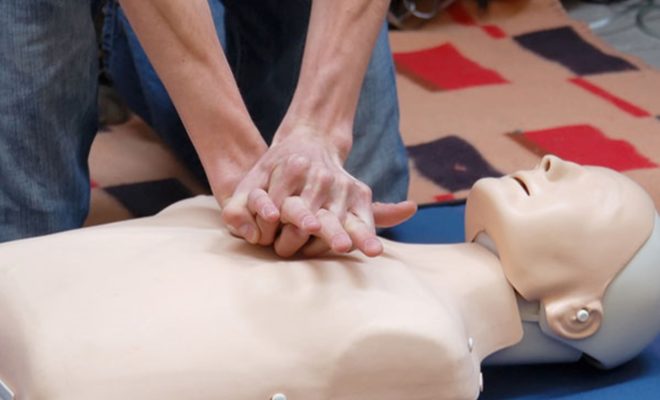Feeling Uncomfortable With Your Opioid Use? Take Control With These 5 Steps

Opioid painkillers are a double-edged sword. They are one of the most trusted and effective means to manage acute pain—so effective that more than 17 percent of Americans have had a prescription filled in the last ten years.
And yet, despite this obvious benefit, they are one of the top killers in the USA, causing thousands of overdose deaths every year. If you’re currently using opioid painkillers, it’s totally normal to feel uncomfortable about their dangerous potential. In fact, you’re wise to feel that way.
I recently discussed opioid addiction with Eric Pflanzer, CEO of EOC Analytics and member of The Safe Opioid Use Risk Reduction Coalition. He had some valuable thoughts for patients currently taking opioids and concerned about the potential consequences.
Based on that conversation, here are five steps you should consider taking if you’re uncomfortable with your opioid use:
1) Educate Yourself On the Symptoms of Addiction
Responsibly taking prescribed opioids for pain management and suffering from opioid addiction are two very different things. Unfortunately, the transition between them can happen suddenly and have devastating effects.
Know what addiction looks like so you can recognize it in yourself.
“Not everyone becomes addicted,” Pflanzer told me, “and it’s not as simple as people who are addicted and people who aren’t. In medical terms, people often become dependent on opioids before they become ‘addicted.’ If you’ve been taking them for more than a year, and you get anxiety when your prescription runs low, those are signs that you may be developing a dependency.”
2) Perform a Medication Self-Audit
Your risk of opioid overdose increases dramatically when you abuse your prescription. Abuse can take many different forms, but it essentially means using the medication in any way other than that which was explicitly prescribed.
With that in mind, it’s important to be honest with yourself.
Ask if any aspect of your opioid use could be considered abuse. Have you ever taken more pills than you were prescribed? Have you ever exaggerated your pain in order to get a larger prescription? Consumed the pills in a way they were not meant to be taken? Does taking the pills help you feel “normal”?
Even if the answer is no, it’s still wise to be wary—particularly if you’ve been taking opioids for an extended period. If you answered any of these questions affirmatively, you should seek help.
The sooner the better.
3) Talk to Your Doctor
If you’re uncomfortable about your opioid use, it’s important that you share your concerns with your doctor. As the one who wrote your prescription in the first place, he or she will be in a position to understand your pain and offer constructive solutions.
“For many opioid users, dependency starts as fear of pain. People think that if they reduce their dosage or stop taking painkillers altogether, they won’t be able to function,” says Pflanzer.
“Fortunately, that’s almost never the case. Doctors are trained to help patients deal with pain in a lot of ways, and frankly opioids aren’t always the best option.”
Trust your doctor enough to share your concerns.
4) Explore Alternative Pain Management Options
Fifty years ago, opioids like morphine were the medical industry’s go-to solution for pain of all kinds. But that was 50 years ago. Today, doctors have a wide array of options when it comes to treating pain. Opioids are just one weapon in an ever-expanding arsenal.
Particularly for chronic pain, where opioids are especially dangerous, there are dozens of attractive alternatives with minimal side-effects.
“Managing chronic pain can be as simple as going in for physical therapy,” says Pflanzer, “or finding a good massage therapist. There doesn’t always need to be medication involved in the solution, but there are also many non-opioid prescription medications which can be very effective at reducing pain.”
“Nobody should feel like opioids are their only option,” he says.
5) Consider Professional Help
There is no shame in acknowledging that you have an opioid problem. Indeed, denial in these cases can be incredibly dangerous. If your self-examination or conversations with doctors leads you to believe that your opioid use is compulsive, get help.
Opioid addiction is deadly, but it’s also eminently treatable. If you voluntarily seek out treatment, your chances of completely overcoming your dependency are very good.
“Being concerned about the consequences of opioids is actually a key element of using them responsibly,” says Pflanzer.
“They are very effective at short-term relief for acute pain, but using them for anything else is obviously dangerous. I applaud anyone who is self-aware enough to seek help when they realize that their opioid use may be a cause for concern.”












